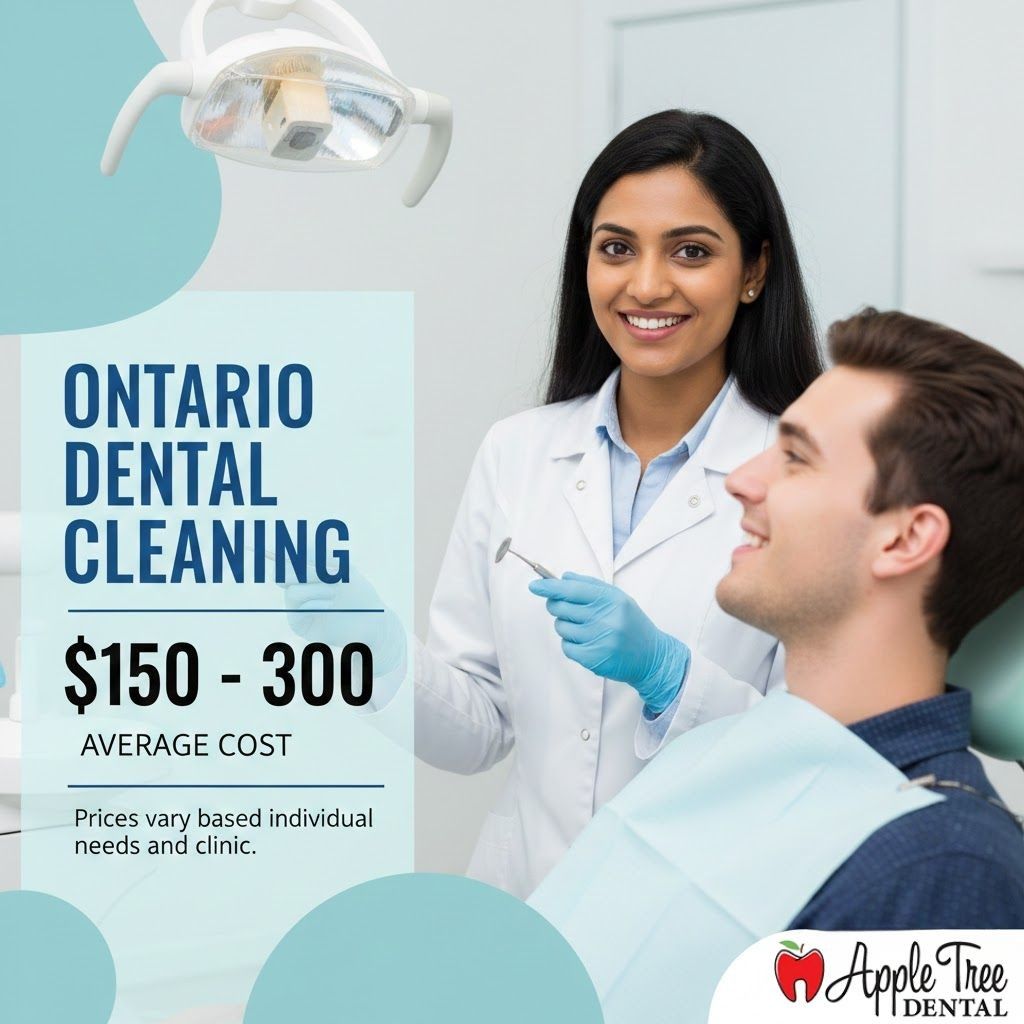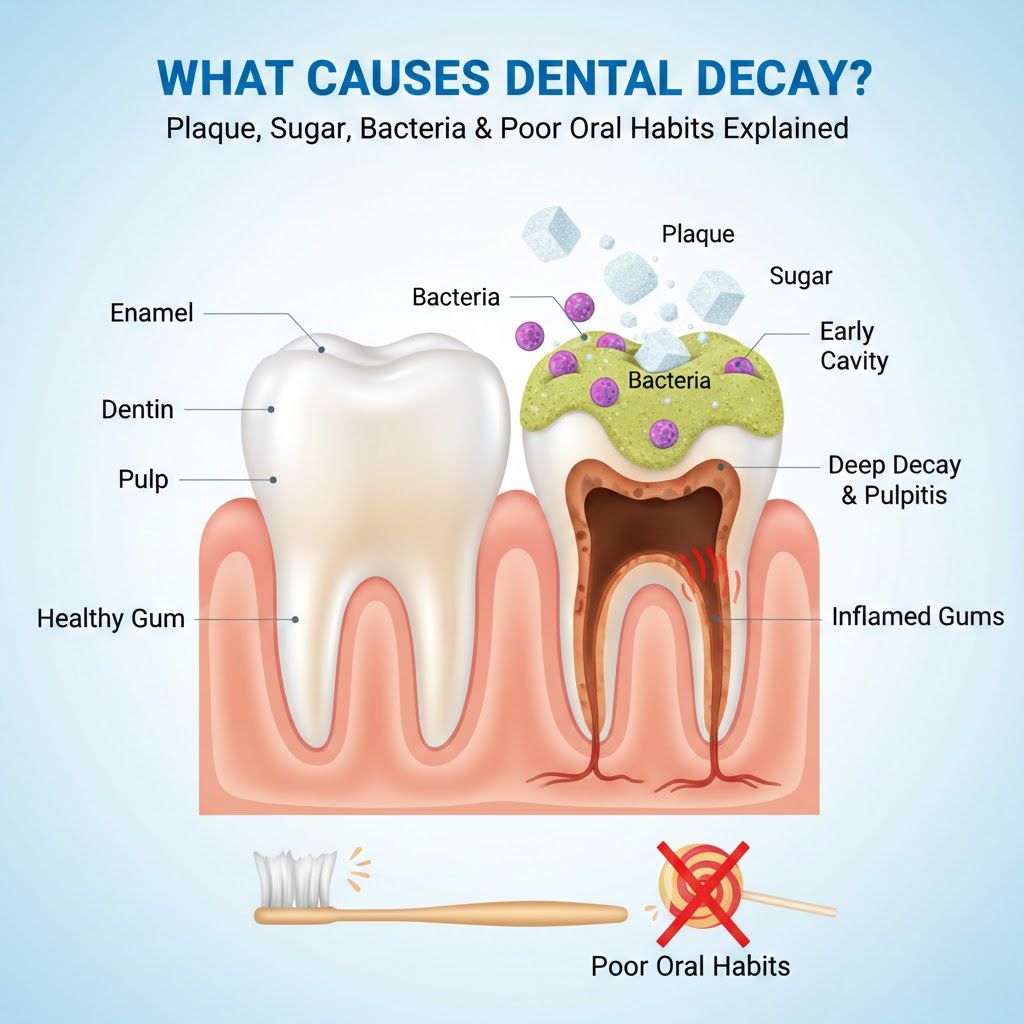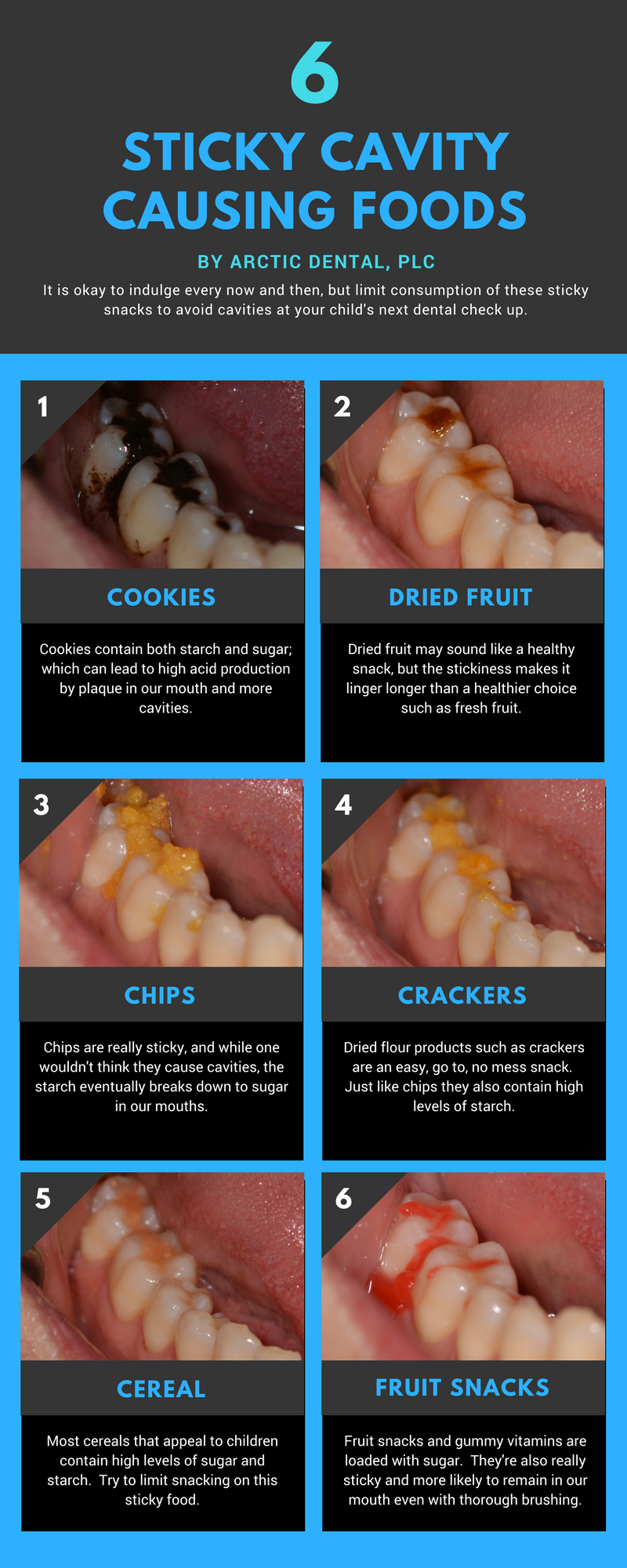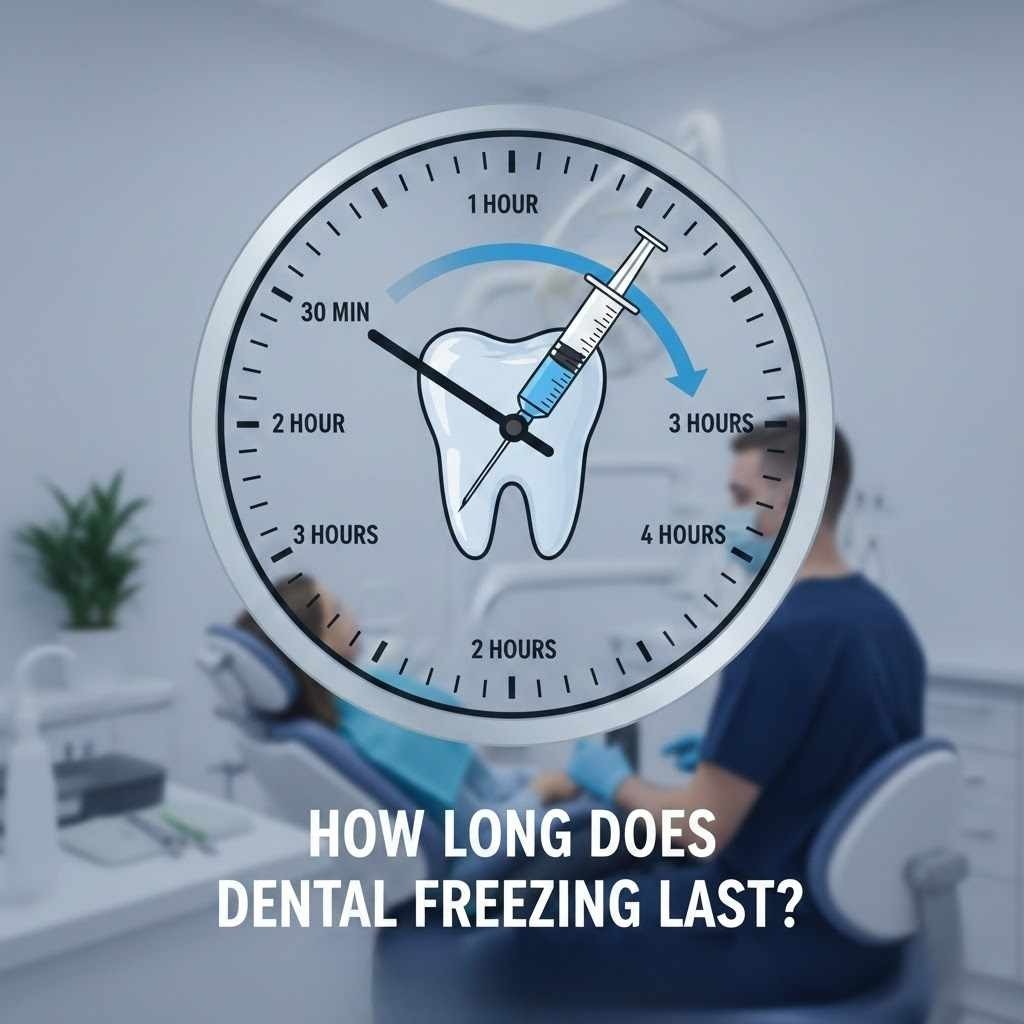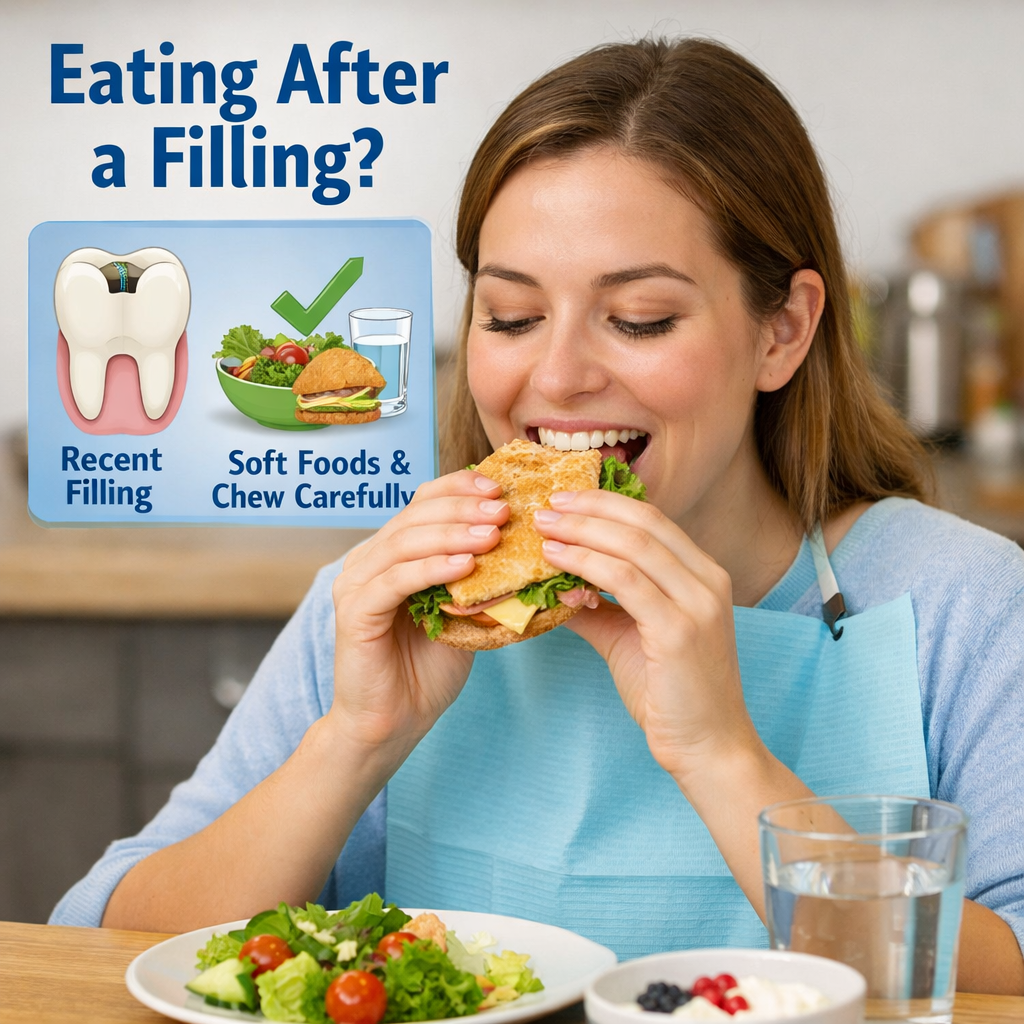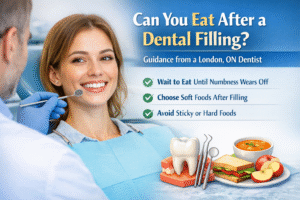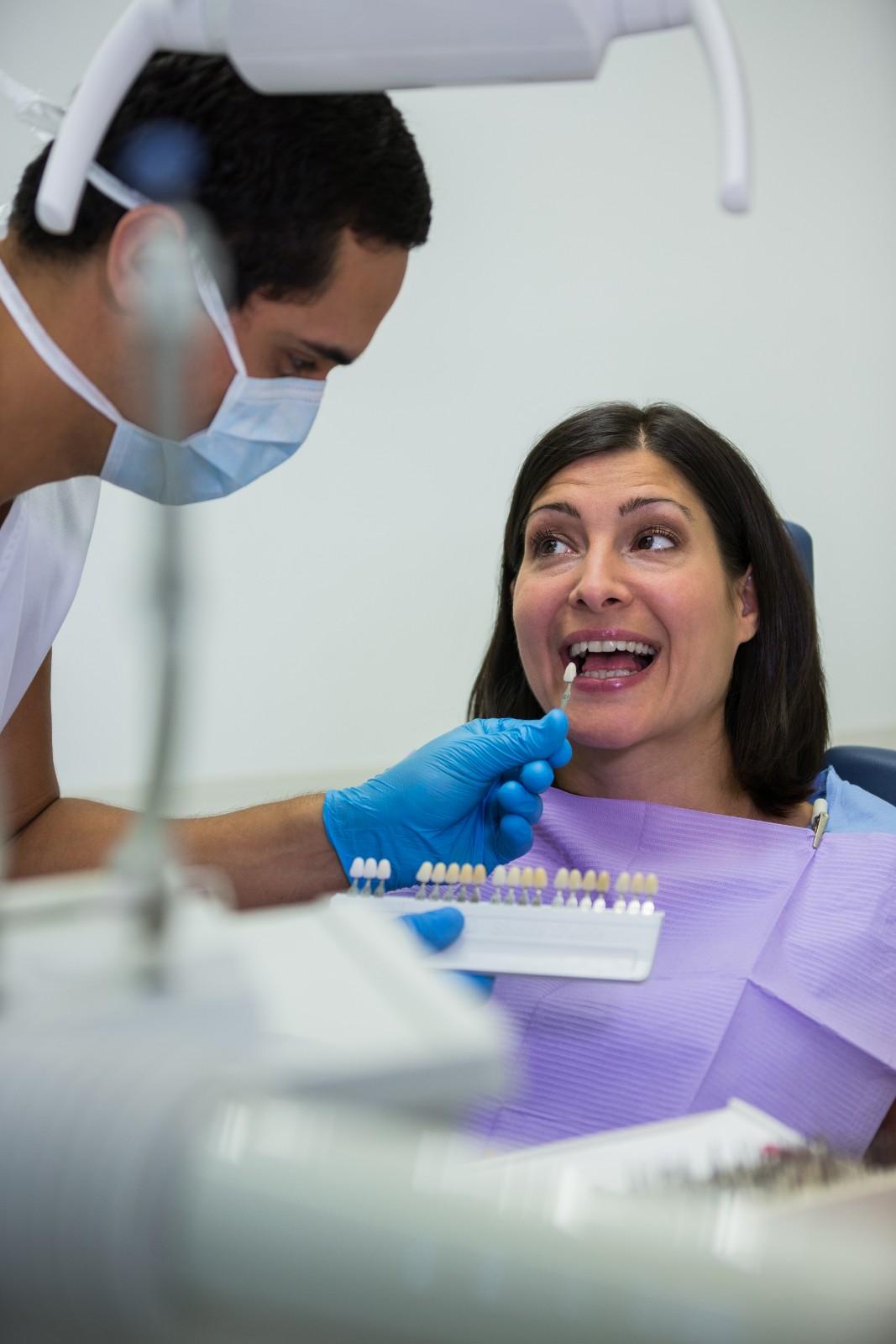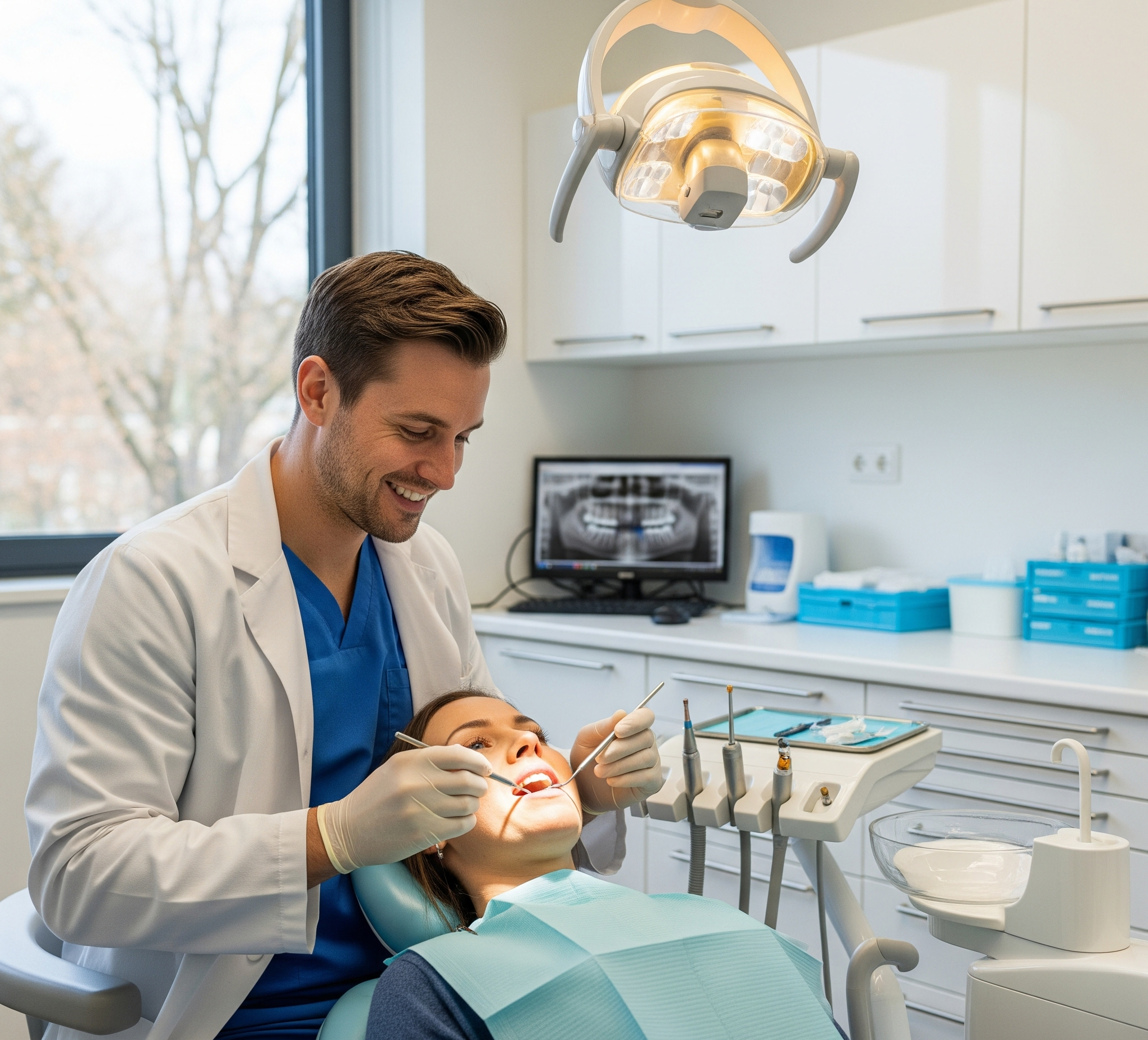Losing one or more teeth affects far more than your smile. It can change how you eat, speak, and feel about yourself. If you’re exploring dental implants vs dentures, you’re not alone—this is one of the most common questions dentists hear today.
At Apple Tree Dental, patients often ask: “Which option will feel more natural?” “Which lasts longer?”, and “What’s actually worth the investment?”
This guide is written to answer those questions clearly, honestly, and in depth—so you can make a confident, informed decision.
What Are Dental Implants?
Dental implants are permanent tooth replacements that consist of three parts:
- An implant post – a titanium screw placed into the jawbone
- Abutment – connects the implant to the crown
- Crown – the visible, natural-looking tooth
Once healed, implants function almost exactly like natural teeth.
A Brief History of Dental Implants
Modern dental implants date back to the 1950s, when researchers discovered that titanium bonds naturally with bone (a process called osseointegration). Since then, implant technology has advanced dramatically, with success rates now exceeding 95% for healthy patients.
“Dental implants are considered one of the most predictable procedures in modern dentistry when patients are properly assessed,” says Dr. Nagham Altalib.
What Are Dentures?
Dentures are removable prosthetic teeth designed to replace multiple missing teeth or full arches.
Types of Dentures
- Full dentures – replace all teeth in the upper or lower jaw
- Partial dentures – replace several missing teeth
- Implant-supported dentures – dentures stabilized by implants
Dentures have been used for centuries and remain a common, accessible solution.
Background: How Dentures Have Evolved
Traditional dentures were often bulky and uncomfortable. Today’s dentures use lighter materials, improved aesthetics, and better customization—though they still rely on the gums for support.

Dental Implants vs Dentures: Side-by-Side Comparison
1. Comfort & Feel
Dental Implants
- Feel like natural teeth
- No slipping or clicking
- No pressure on gums
Dentures
- May feel bulky
- Can move while eating or speaking
- Often require adhesives
Real-world scenario:
A patient in their 50s switched from lower dentures to implants because the denture kept lifting while talking. After implants, they reported feeling comfortable speaking in meetings again.
2. Chewing & Eating Ability
Implants
- Restore nearly full biting force
- Eat steak, apples, and nuts confidently
Dentures
- Reduced chewing efficiency
- Hard or sticky foods can be difficult
3. Bone Health & Facial Structure
Implants
- Stimulate jawbone
- Prevent bone loss
- Help maintain facial shape
Dentures
- Do not prevent bone loss
- Over time, can lead to sunken facial appearance
This is one of the most critical long-term differences between dental implants vs dentures.
4. Longevity & Durability
Implants
- Can last 20+ years, often a lifetime
- Crowns may need replacement after 10–15 years
Dentures
- Typically last 5–8 years
- Require relining or replacement as bone changes
5. Maintenance & Daily Care
Implants
- Brush and floss like natural teeth
- No special cleaning products
Dentures
- Must be removed daily
- Require soaking and careful handling
6. Cost Considerations (Important Disclaimer)
Upfront costs for implants are higher, but long-term value is often better due to longevity and reduced maintenance.
Disclaimer: Costs vary depending on bone health, number of teeth replaced, and individual treatment needs. A dental exam is required for accurate pricing.
Who Is a Good Candidate for Dental Implants?
You may be suitable if you:
- Have healthy gums
- Have adequate jawbone (or are open to bone grafting)
- Don’t smoke heavily
- Can commit to oral hygiene
Age alone is not a limiting factor.
Who Might Be Better Suited for Dentures?
Dentures may be appropriate if you:
- Want a lower upfront cost
- Prefer a non-surgical option
- Have medical conditions limiting surgery
Many patients start with dentures and later upgrade to implant-supported solutions.
Current Trends in Tooth Replacement
- Implant-supported dentures are growing in popularity
- Digital implant planning for precision placement
- All-on-4® style treatments reduce treatment time
- Greater focus on bone preservation and long-term oral health
The Future of Dental Implants vs Dentures
Looking ahead, expect:
- Faster healing implant surfaces
- Less invasive surgical techniques
- More affordable implant solutions
- Increased use of AI-guided treatment planning
Research continues to improve comfort, predictability, and accessibility.
Frequently Asked Questions
Are dental implants painful?
Most patients report mild discomfort, similar to a tooth extraction. Pain is typically manageable with over-the-counter medication.
How long does the implant process take?
From placement to final crown, the process can take 3–6 months, depending on healing and whether bone grafting is needed.
Can dentures be worn at night?
Dentists usually recommend removing dentures at night to allow gums to rest and reduce infection risk.
Do implants ever fail?
Failures are rare but can occur due to smoking, poor oral hygiene, or uncontrolled medical conditions.
Are dental implants safe?
Yes. Dental implants are supported by decades of clinical research and are widely used worldwide.
How to Decide: A Simple Framework
Ask yourself:
- Do I want a fixed or removable solution?
- Am I thinking short-term affordability or long-term value?
- How important are comfort, confidence, and bone health to me?
A personalized consultation is always the best next step.
Conclusion: Dental Implants vs Dentures—Which Is Right for You?
There’s no universal answer. Dental implants offer unmatched stability, comfort, and long-term oral health benefits. Dentures remain a practical, accessible solution for many patients.
At Apple Tree Dental, the goal isn’t to push one option—it’s to help you choose what truly fits your health, lifestyle, and goals.


